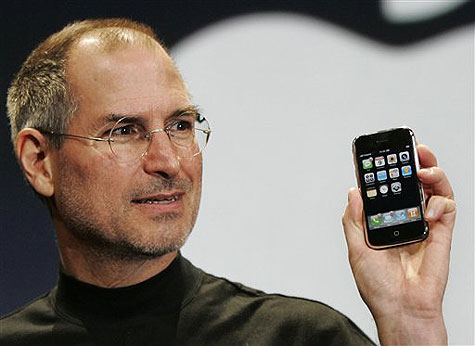 Apple Computer faces a crisis of confidence after yesterday's death of its visionary co-founder and long-serving CEO Steve Jobs.
Apple Computer faces a crisis of confidence after yesterday's death of its visionary co-founder and long-serving CEO Steve Jobs.
This is not the first time Apple has lost Jobs' insprirational influence.
After Jobs was ousted by "professional" management in the mid-80s, Apple lost its way over the next decade, delivering increasingly mediocre products and coming close to failure.
Meanwhile Jobs built successful businesses including animation trailblazer Pixar and Unix workstation specialist NeXT Inc - which laid the foundation for Apple's Mac OS X.
Jobs returned to Apple in 1997 as "interim CEO", the role he relinquished only a few weeks ago. During this "temporary" tenure, Jobs transformed Apple from also-ran to the world's most valuable technology company.
He was the inspirational force behind a simplification of Apple's product line to a series of stylish and spectacularly successful products
The iMac, the iPod and iTunes, the iPhone and the iPad not only transformed Apple, they revolutionized the music, mobile phone and computing industries.
The fact that I received the request for this story on my iPhone and I'm writing it on my iPad while in the car traveling to Melbourne demonstrates how much the vision of Steve Jobs has changed individual lives.
Apple's crisis of confidence relates to investor, customer and its own belief in its ability to continue innovating without this obsessively perfectionist leader.
The company has had plenty of time to prepare for this day. Since 2004, Jobs had survived pancreatic cancer, a liver transplant and several prolonged bouts of medical leave.
So the Cupertino-based company probably has several years of Jobs-inspired ideas in its pipeline: But the problem for Apple is not just the concept, it's the execution, something Job pursued with perfectionist zeal.
The challenge facing new CEO Tim Cook, who took Apple's reins officially on August 24, is not just to hold together an incredibly talented team: It is to maintain the brilliant shine of a company that is regarded as revolutionary rather than evolutionary.
The underwhelming welcome to this week's launch of the iPhone 4S does not augur well for his new regime.
Steve Jobs was the last hands-on CEO from the generation that created the personal computer revolution.
The world, not just Apple, is poorer for his passing.
This is the full version of a story by John Harris that was published by The Advertiser, in Adelaide, on Friday, October 7, 2011
If you want to check out some of the Steve Jobs' magic, watch his commencement address to Stamford University in 2005, in which he talks about adoption, being fired from Apple, "joining the dots" in your life and the topic of death (thanks to YouTube!
Related News
- Putting search engine smarts into your website JOHN HARRIS offers a few tips to make your website more visible to Google. For many businesses, a smart website is a more important marketing tool than tradi...
- Intel chips away at the confusion As he looked for a new notebook recently, JOHN HARRIS discovered that even chip giant Intel believes that the confusion caused by computer jargon is a problem. It’s re...
- Attack of the clones JOHN HARRIS discovers that Apple's popular iPhone has a new rival, in the form of Blackberry Storm, released in Australia today. Nearly two years after Apple revealed its...
- Invasion of the Androids Google's mobile operating sytem, the HTC Dream, arrives in Australia this week, so JOHN HARRIS has a first look. Apple’s game-changing iPhone faces new competition from this week.T...












